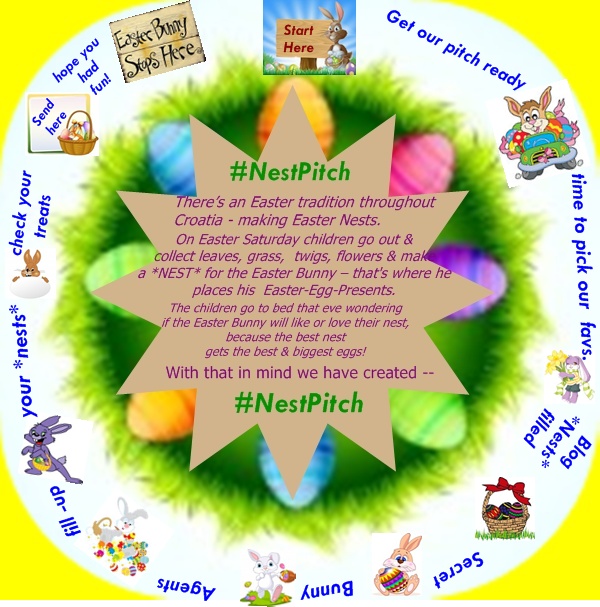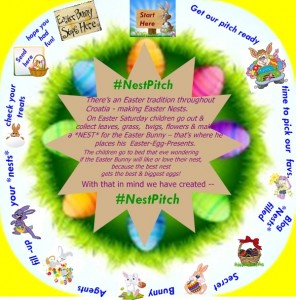Nest Pitch JK6: THE FERGUS SHE
Category/Genre: NA Paranormal Romance
Word Count: 50,000
Pitch:
Rachel’s got a smart mouth, an insane mother, and a hereditary demon waiting inside of her. When The Fergus She takes over Rachel’s body, Rachel has to get control back before her life is destroyed.
If the MC was an Easter egg…
If Rachel were an Easter egg, she’d be a double-yolker, because where Rachel goes, The Fergus She follows.
Excerpt: 300 words.
It was just another Friday night at the Albion—boring and dull with limited chances that I’d find one real man in the Pub-of-my-life. I wrapped my lips around the amber “o” of the beer bottle and tipped a dribble of warm brew down my throat. Not that I wanted a man. I was off the opposite sex for a while; sick of being duped. For all my bravado, my strength and what I hoped was a little intelligence, I still couldn’t figure out how to find a nice man. I was perpetually drawn to the losers who skidded along the alleyways of dead end streets.
A cockroach scuttled across the burgundy swirls on the grimy carpet, followed by a pair of pristine white sneakers. I dragged my eyes up the acid-washed jeans to the black belt that neatly clutched a white t-shirt in its grasp.
“Wanna go a round?” The voice belonging to the legs said.
“A round of what?” My scathing glance slid up to a clean-shaven face.
“Darts?” The word held a confused shrug.
The man-boy showed me a handful of sharp instruments sporting multi-coloured feathers. He gripped them anxiously in his thin fingers, as if hoping the darts could replace his lack of plumage and win a mate.
“Not likely.”
I stared at the would-be suitor, until he sighed in defeat and retreated. The four other eligible men in the room had watched the exchange and were now very aware that I was not up for the taking. I lifted my head and ran my haughty glance over each face. One by one, they looked away from my thunderous expression; my ice-queen posture.
That’s right boys, leave me alone or I’ll eat you alive.






